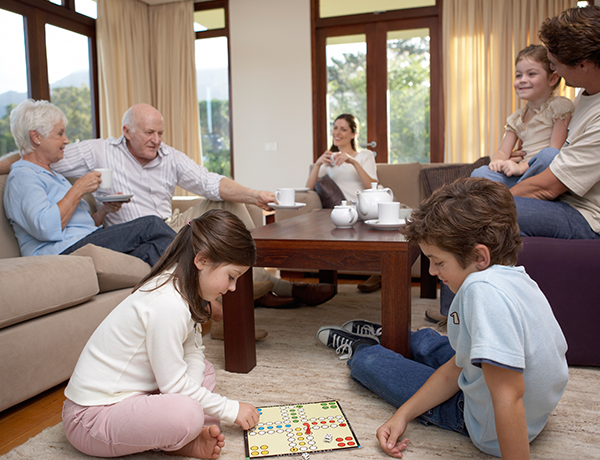Balancing Holiday Traditions with Dementia Changes
 This compassionate piece centers on one family adapting to a mother’s advancing Alzheimer’s disease, and how it has changed their holiday customs. They make fewer social appearances and do extra preparation to preserve her routines, while still missing her old presence. The article includes some helpful tips for including loved ones with dementia in the holiday hubbub while minimizing potential agitation.
This compassionate piece centers on one family adapting to a mother’s advancing Alzheimer’s disease, and how it has changed their holiday customs. They make fewer social appearances and do extra preparation to preserve her routines, while still missing her old presence. The article includes some helpful tips for including loved ones with dementia in the holiday hubbub while minimizing potential agitation.
(When Mom Has Alzheimer’s, A Stranger Comes For Christmas; NPR)
On the same topic, author Marguerite Manteau-Rao raises some tough points about the difficulties of factoring a loved one with dementia into a busy holiday schedule. Pointing out that individuals with dementia may not remember a visit the day before or after, but can feel hurt when external cues remind them of the holiday, she pulls no punches.
(How to Be With a Loved One With Dementia During the Holidays; Huffington Post)
Linking Brain Fitness to Physical Fitness
A fascinating new study out of Japan examines the relationship of aging to brain function. In youth, we use certain regions of our brains to complete difficult tasks; as we age, other regions chip in and work harder to achieve the same result. But the most physically fit subjects in the study showed brain activity in the ‘young’ regions, and much more efficient than their physical ages would suggest. Although the researchers did not prove that exercise makes the brain act younger, the results demonstrated some link between physical and mental fitness.
(Does Exercise Help Keep Our Brains Young?; NYT Well blog)
The Consequences of Keeping Death Out of Mind
This examination of death in our society unpacks how our traditions, practices, and even language have distanced us from death and dying. The author speculates that we have developed a distaste for death that may actually be a drawback at the end of life. She argues that unfamiliarity breeds fear, which may lead to unnecessary treatments that diminish quality of life, as well as discomfort with the natural process of grieving.
(The Problem with Death Avoidance; Pallimed)
Other News
- Emphysema cannot be cured, but for some patients with restricted breathing, a new medical device in development could improve extreme shortness of breath symptoms. (Implantable air valves help some emphysema patients breathe easier; Reuters)
- Researchers have found that fat burning may be managed at the genetic level. Fat cells release a protein that inhibits fat burning: the more fat is in the body, the more it is preserved. (Why weight loss is harder when we carry more fat; MNT)
- Conflicting reports suggested that the body metabolizes sugar substitutes differently, or that appetite increases, causing weight gain rather than loss. But a new meta-analysis of prior studies indicates that zero-calorie sweeteners do have a positive effect on calorie intake and weight management. (Sugar substitutes may not boost calorie intake or body weight; Reuters)
- Medication management is such an important part of managing chronic illness. This article outlines some reasons why seniors may fail to take their medications, and offers tips for assisting loved ones who can’t (or, in some cases, won’t) take their meds as prescribed. (Correct Medication; Inside Elder Care)
- Commencer l’apprentissage! (Second language linked to better brain function after stroke; Reuters)
- Here’s an explanation of what both halves of your blood pressure reading mean, and what they may indicate for your risk of heart disease. (Ask Well: Blood Pressure, the Top and Bottom Numbers; NYT Well blog)
- From 1996 to 2011, the number of amputations related to diabetes dropped substantially. The difference is credited to advancements in treatment and self-care. (Major fall in diabetes-related amputations since the 1990s; MNT)
- With today marking the darkest day of the year, many are turning to light therapy to combat seasonal lows. A small new study suggests that this same treatment may have benefits for ‘non-seasonal’ depression as well. (Light therapy may ease depression, not just winter blues; Reuters)

